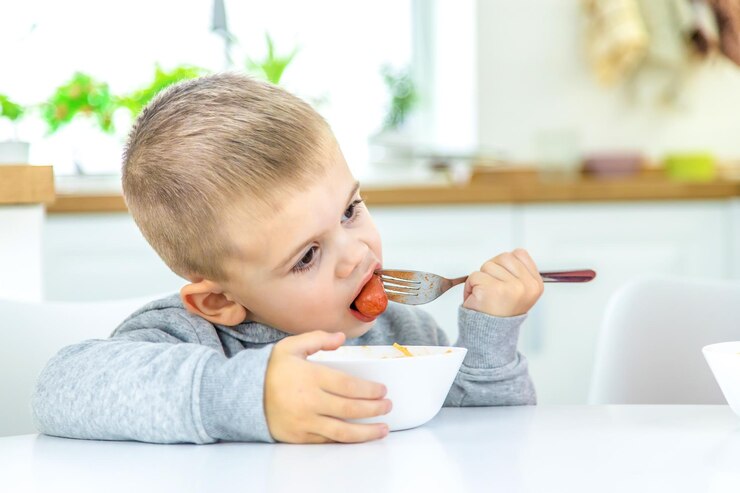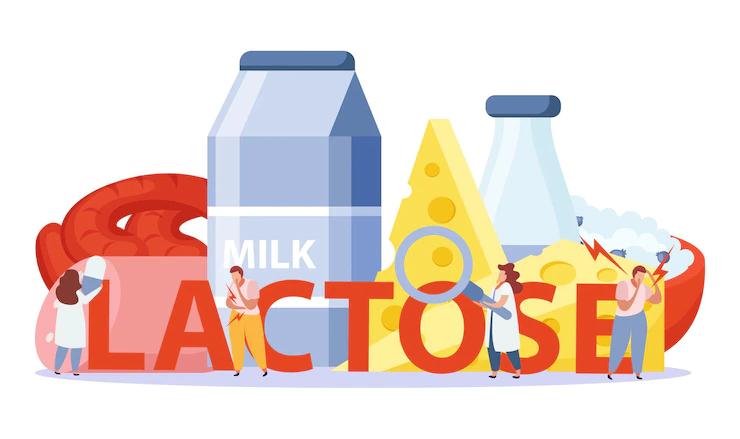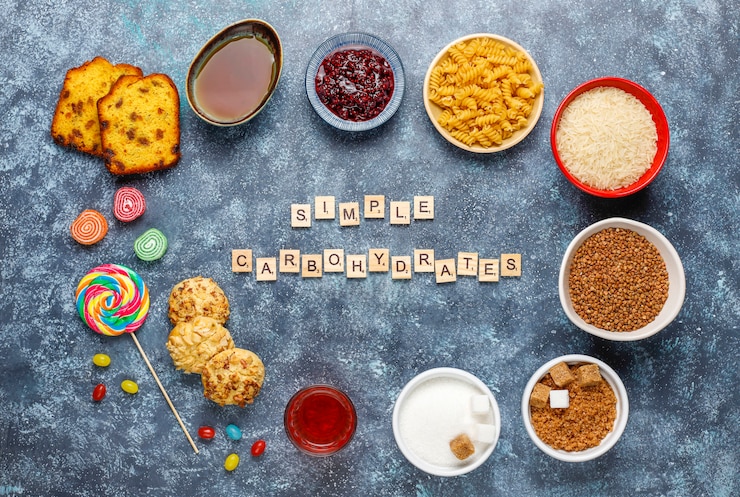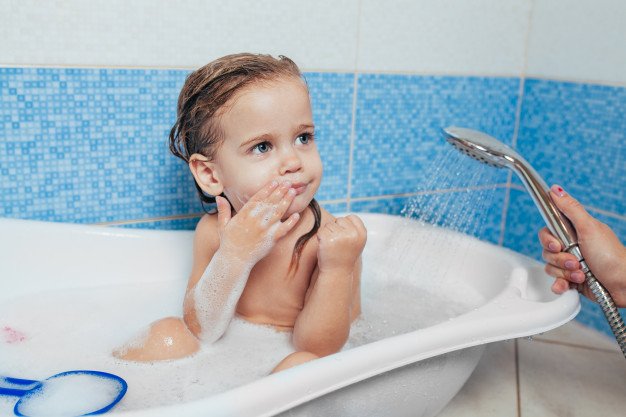It is a well-known fact that carbohydrates in baby formula are the main, easily digestible energy material for a baby’s body.
Then, when the child grows up, the role of the main sources of carbohydrates in his diet is played by fruits and berries, as well as juices, milk, honey, sugar, cookies, candy, and various jams.
But we must not forget that an excessive intake of carbohydrates eventually leads to a metabolic disorder, obesity, and reduced resistance of the body to various infections.
Contents
- 1 How Many Carbohydrates Are Present In Baby Formulas?
- 2 How Is Lactose Increasing Carbohydrates Amounts In Baby Formula?
- 3 Is lactose Best For Infants?
- 4 Which One Is Better Dextrin-Maltose Or Lactose In Baby Formula?
- 5 Simple Vs. Complex Carbohydrates In Baby Formula
- 6 Is Artificial Sugar Are Adding In Baby Formulas?
- 7 How Many Sweets Are Good For Babies?
- 8 Conclusion:
How Many Carbohydrates Are Present In Baby Formulas?
This may not be news to some, but it is the composition and amount of carbohydrates that determine the child’s tolerance to baby formula.
-
Lactose
The main type of carbohydrate in the baby formula is lactose.
For example, in Holle Formula, there are 61.4 g of carbohydrates per 100 g of finished formula, of which 44.7 g is lactose.
Milk sugar is not only a source of energy for a baby but also an ideal medium for the cultivation of bifidobacteria that promote immunity. But the principle of “the more, the better” does not work here.
If there are not enough enzymes to digest, lactose in the intestines can begin fermentation. If the baby had an acute respiratory infection, intestinal infections, or stool disorders might even develop dysbacteriosis.
To avoid this happening, the amount of carbohydrates in the milk mixture is chosen very carefully. And sometimes, paediatricians even recommend the use of fermented milk formula containing bifidobacteria, which aid in the absorption of milk sugars.
How Is Lactose Increasing Carbohydrates Amounts In Baby Formula?
Quantitative adaptation of lactose involves increasing the number of carbohydrates in the baby formula so that its composition is as close to that of breast milk as possible.
More important is the question of the type of carbohydrate attached. A number of aspects are taken into consideration: osmolarity, sweetness, bifidogenic, and the ability to form acid in the mouth.
Is lactose Best For Infants?
For healthy infants, the best carbohydrate is lactose. But for a number of medical and technological reasons, other types of carbohydrates are used.
The first generations of adapted formulas used sucrose and dextrin-maltose or dextrin-maltose together with starch (oat flour, rice flour, buckwheat flour) to correct the carbohydrate component.
The modern adapted baby formula uses primarily lactose, which children usually tolerate well. But there is an opinion that in some cases, babies may have intestinal colic.
Which One Is Better Dextrin-Maltose Or Lactose In Baby Formula?
The advantage of dextrin-maltose over lactose, and main sucrose, is its low osmolarity in solution.
It is this feature of dextrin-maltose that is taken into account when developing formulas for premature and low birth weight infants since they have a significant risk of developing necrotizing enterocolitis when fed the baby formula with high osmolarity.
The greater the energy expenditure of the body (we are talking about fidgety babies), the more “fuel” it needs. “Fuel” for the body is primarily carbohydrates, then fats, and to a much lesser extent – proteins. A healthy diet means a balance of all components.
So, to replenish the energy requirements of the baby. Great importance is carbohydrates. It is, they provide energy for muscular work. The more children move, the greater their need for carbohydrates. They should be in the diet of children 4-5 times more than proteins or fats – this is the norm.
Simple Vs. Complex Carbohydrates In Baby Formula
Carbohydrates are divided into simple and complex. Simple carbohydrates are called sugars and are found in fruits, berries, and some vegetables as glucose (grape sugar), sucrose (beet sugar and cane sugar), fructose (fruit sugar), and malt sugar, as well as in milk and dairy products.
Water-insoluble complex sugar enters as starch in cereals and potatoes. It is a complex carbohydrate. But sugars are rapidly soluble in water and therefore quickly absorbed into the blood and well absorbed by the body. Starch must first be broken down into simpler compounds. It enters the blood gradually.
Therefore, it is advisable to replenish the main mass of carbohydrates with foods containing starch, and only a quarter or a fifth in the form of regular sugar, confectionery, and as part of the fruit. And you should never forget that an excess of carbohydrates is highly undesirable.
Read Also: How to Get Your Baby Started on Solid Foods
Is Artificial Sugar Are Adding In Baby Formulas?
All children love sweets, but abuse of sweets can cause considerable harm: children quickly put on weight, reduced immunity, decreased muscle tone, the tissue becomes loose, the skin becomes pale. These children become lethargic. They begin to fall ill often and severely, with complications.
The growing child receives carbohydrates also from cereals. Add them to different oatmeal, soups, side dishes, puddings, casseroles, and other dishes! A child should eat 40-45g of varying baby formula and cereals in a day.
These also include beans and peas. Be sure to add them to soups and salads! Bread has always been, is, and will be the head of everything! Of the required 150-170 grams per day for a child, 1/3 should be rye bread.
How Many Sweets Are Good For Babies?
Sugar intake is a separate topic! All children love them very much, but you have to remember that after sugar (40-50 grams per day) or all confectionery (20-40 grams per day) the most useful for your child is honey!
Only 5-10 g on baby formula day, but for the whole week, if you can! In second place – jam, jam, marshmallow, marshmallow, marmalade. Candy is out of the question! Except sometimes on holidays, as an exception!
Conclusion:
Today, on the shelves of stores, there is a baby formula large arsenal of a variety of mixes of numerous companies with worldwide experience, which allows you to choose the appropriate for individual needs of the child.
But parents, in turn, are sure to teach and monitor their composition. And always remember that a balanced diet guarantees good health for the baby.
Read Also:
























